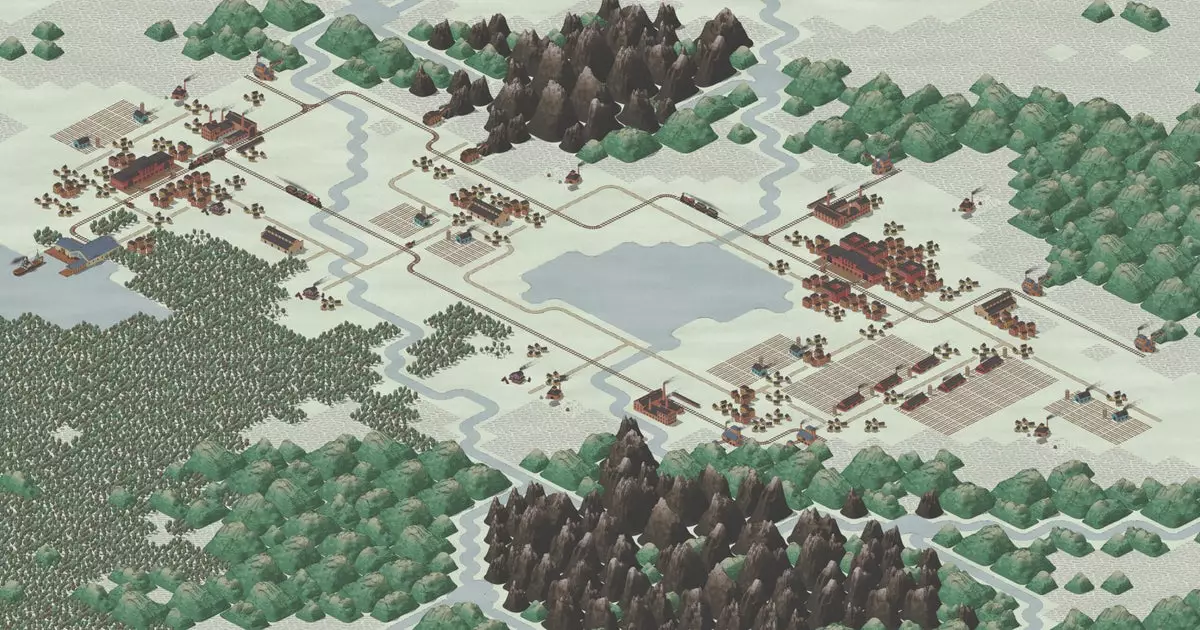In the realm of city-building games, “Times Of Progress” emerges as a noteworthy title that stitches together the complexities of urban management and the historical nuances of the Industrial Revolution. The game found its inception through a strategic tip from Sin Vega, the Prime Minister of Strategy Gaming, bringing with it a blend of rich gameplay and engaging aesthetics. In this analysis, we’ll delve into its unique features, design philosophy, and the intricate balance between gameplay mechanics and historical context.
Set against the backdrop of the Industrial Revolution, “Times Of Progress” transports players into a world characterized by innovation and transformation. The developmental landscape is reminiscent of a time teeming with steam engines, trade unions, and urban expansion. Unlike typical city builders that may lean towards expansive resource management, this game narrates a tale of historical progress. The absence of military engagements and culture layers marks a significant divergence from the genre, steering players into a purely commercial interaction with other cities.
The game thrives on a timeline mechanic that mirrors historical advancements, where technologies like typewriters and water frames become accessible as the player’s city flourishes. Instead of merely assigning researchers to dive into discoveries, players earn the opportunity to adopt these innovations by fulfilling specific goals. This temporal progression elevates the gameplay experience, allowing players to indulge in forward-thinking strategies that reflect the era’s ethos.
One cannot discuss “Times Of Progress” without acknowledging its captivating presentation. The game adopts a meticulously crafted isometric view, adorned with procedurally generated landscapes that exhibit a harmonious balance of color and design. The visual experience is both engaging and polished, featuring a muted palette of earthy tones — pale earth, red brick, and diversified green hues forming a visually coherent tapestry.
Yet, amidst this minimalist charm lies a dynamic world alive with animated traits such as billowing smoke and evolving structures. This animated realism complements the core gameplay, offering a satisfying sense of progress as buildings scale up into more elaborate forms over time. The visual representation plays a significant role in enthralling players, drawing them into the nuanced realities of urban development during a pivotal historical juncture.
While “Times Of Progress” may initially appear simplistic, it is underpinned by a myriad of systems that introduce complexity. Trade stands at the forefront, emphasizing merchant interactions crucial for progressing within the game’s economy. This deliberate choice strips down the city-building process to its essential components, allowing for strategic thinking beyond the construction of buildings.
Labor dynamics further enrich this complexity, presenting players with the need to navigate the intricacies of worker satisfaction. Strikes may erupt if employees are not compensated adequately — a mechanic that mirrors the historical labor movements of the time. Players are faced with the delicate balance of meeting demands or resorting to police action, thereby introducing consequential decision-making elements reminiscent of actual labor politics.
The introduction of university-educated workers further complicates gameplay dynamics, as these individuals exhibit heightened tendencies to strike. As such, investing in education becomes a double-edged sword; it can enhance productivity while also provoking unrest. This layered system offers a window into socio-economic structures, fostering a thoughtful dialogue about labor rights and the importance of worker welfare.
“Times Of Progress” is more than just a city-building game; it is a thoughtful exploration of an era defined by change and complexity. As players immerse themselves in its unique blend of historical intricacies and aesthetically pleasing environments, they are challenged to think critically about the broader implications of their decisions.
As development progresses, one can only hope for further refinements and expansions that enhance the experience. The solo developer, Pressing Thumbs Games, has crafted a title that not only succeeds in capturing the essence of an epoch but also in offering players a rich playground for strategic thought and creativity. For those intrigued by the potential of urban development interwoven with historical significance, “Times Of Progress” promises an engaging venture into the past.

